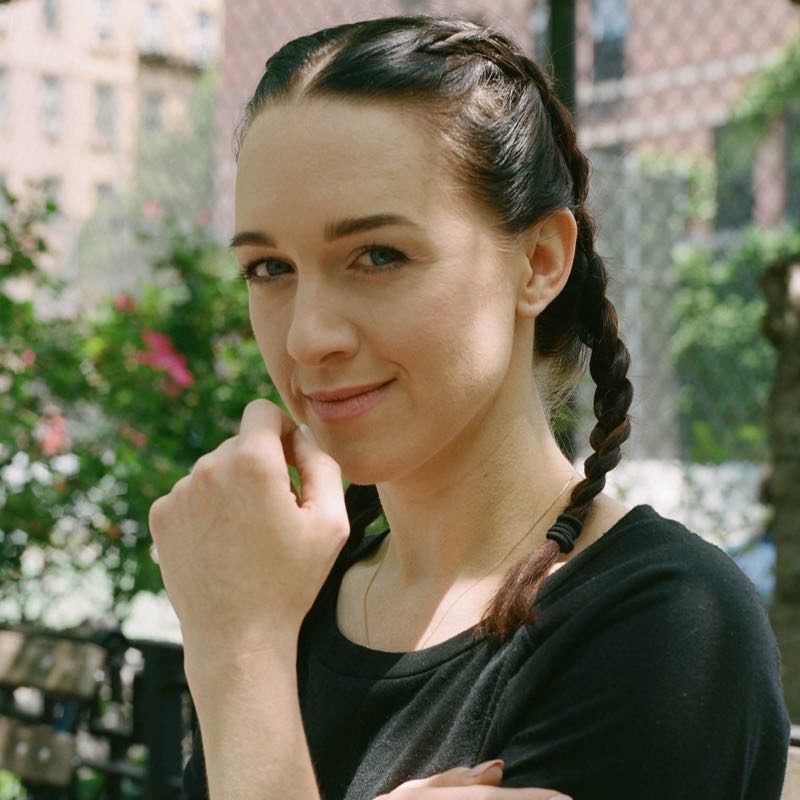An Interview with Lena Hall
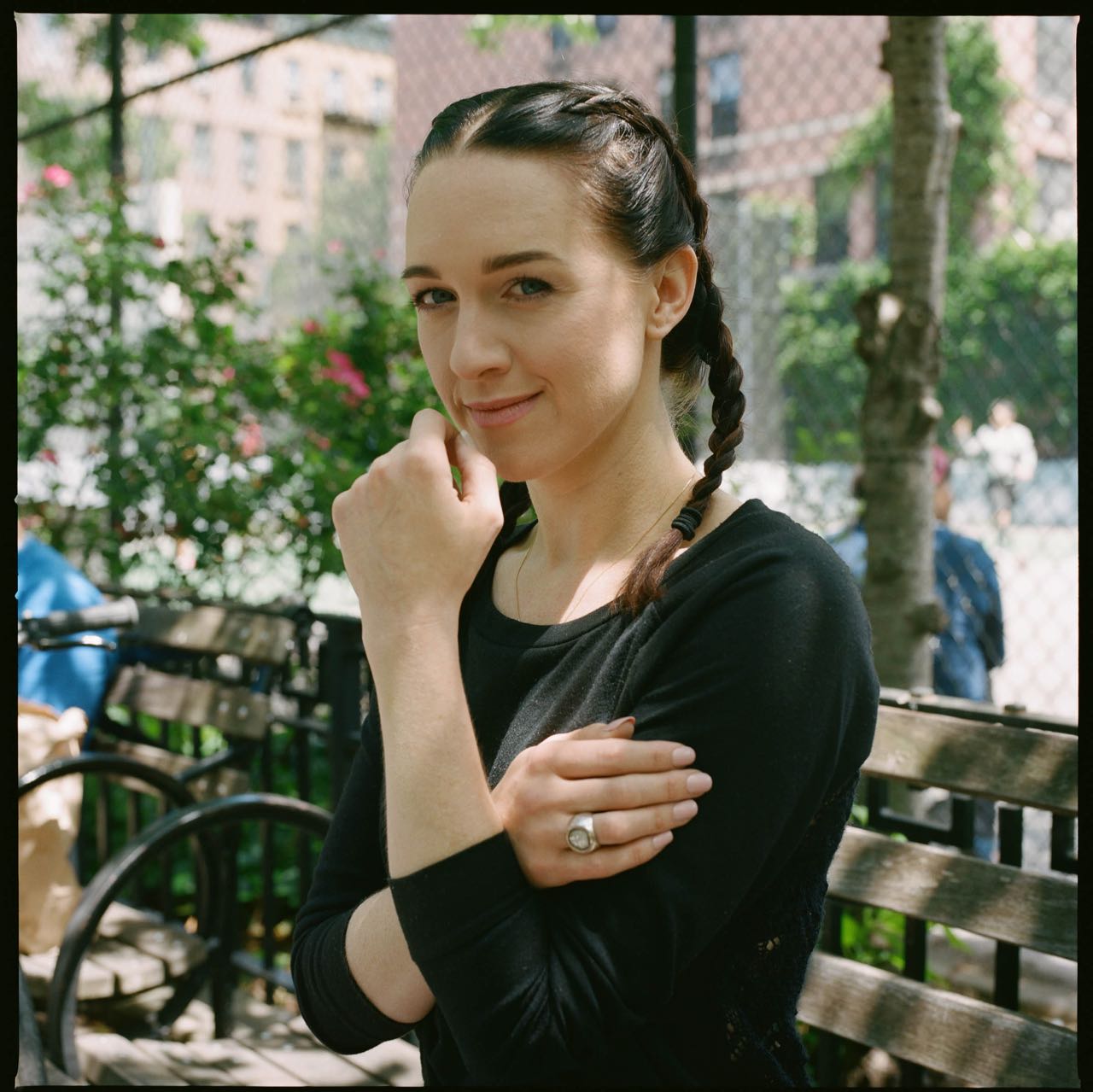
June 25th, 2018
Lena Hall has optimized her rocker brand and built up a large fan base on social media. The 2014 Tony winner for her portrayal of Yitzhak in Hedwig and the Angry Inch seems just as skilled at handling the business aspects of a theatrical career as she does at performing onstage. She is now venturing into new territory, having recently shot her first feature film, Becks. She is also in the midst of rolling out her monthly Obsessed series, a year-long compilation of EPs and music videos starring and co-produced by Lena herself. To celebrate reaching the halfway point in the series, Lena will be performing in a concert called Six Months of Obsessions: from Radiohead to Hedwig at Public Arts on Wednesday June 27. I recently sat down with Lena for a conversation about her experience working on the Obsessed series, the importance of mentorship, why failure is not a bad word, and more.
What inspired you to create Obsessed?
Because of social media, I felt like I needed to produce content for fans at a higher rate than normal. So, I was trying to think of ways to do it. One way I did it was I did this video series called Stripped. There were 19 videos and I released one a week to see what people thought, if they really like the idea of that kind of content. So, I started doing that, and then I announced that I was going to do Obsessed: Hedwig, an acoustic album of Hedwig. Warner Music Group came to me, and they were like, “We want to release the Hedwig Obsessed album.” They had also seen all the videos, and they were like, “This is a great idea. Why don’t we combine the idea into two things and do it year round?” So, that’s kind of how it came together. The idea of putting content out on a faster basis was something I had thought of, and they basically combined the two projects into one. We came up with the alpha version of Obsessed, and then I had a month to pick out my favorite artists, or the ones that I wanted, just go around and pick the songs. It was really hard. Then we rehearsed for eight hours and then we filmed for eight days. We recorded the whole series in eight days, and it’s just been rolling out now.
I’m really proud of it. I like the rawness of it. In recordings and pop music, we don’t get a good sense of the raw performance of an artist because there’s autotune and all the computer-generated stuff. It’s become the norm to use it to make the vocals perfect. But when you do that you lose the soul of the vocals, and it loses a little bit of that interesting quality when someone’s performance is just really raw. So, I love the [Obsessed] series because I didn’t have time to get too nit-picky with it. I had to relax. For me, that was a hard challenge because I’m picky of course, but at the same time, I’m glad we did, because all of the character in my voice comes across and makes it more interesting.
How did you choose the twelve singers and bands to feature in Obsessed? I know you’ve recorded songs by P!nk and Dolores O’Riordan [of The Cranberries]. Will you be including work by any other female musicians?
Dolores O’Riordan’s voice is just so unique and it was really original at the time. I chose that [music] because it was a really strong memory. A lot of times, I choose artists that bring back these really strong memories for me, or have a deep connection to stories of my life. I chose
P!nk because I’ve performed songs of hers before, and she’s an extremely strong woman. She’s probably one of the strongest in the pop business. She’s feminine, but there’s this strength underneath it all, which I really, really love. I really admire the arc of her career so far, how she started off kind of hip-hop and then she found her way. There’s a lot about P!nk that I relate to.
Dolores was kind of the same way. She was a softer version, but she’d sing hard rock. The Cranberries had punk rock songs and her lyrical content is really, really good. The lyrics she wrote, all about struggles in Ireland and wars, were very political. I love that. There’s a strength there. There’s a strong character. It’s not overdone glamour. You’re getting the real deal. You can tell this is the path they wanted to go down. This is what they believe in. This is how they wanted to be. I think that’s where strength comes in—knowing what you want and going for it, and being strong in your opinions, and fighting for what it is you want in the end. Those are the only two females in the Obsessed series. I was thinking about doing more, but I didn’t really choose on gender. I chose on strength of character, and strength of songs, and what I really love to listen to and love to sing.
Also, I like singing male stuff and not changing any of the pronouns, because I think that a woman singing a song written by a man brings a totally different meaning to it. I sing a lot of Guns ‘N Roses, and in their lyrics they speak down to women, putting a woman down as a hooker or just using them. But, when a woman sings about that, it actually flips the script. It’s almost like you own it more, and so then it becomes this power play. There’s a song called “Rocket Queen” that’s about one of their groupies, a girl that sleeps around. When a woman sings it, it changes the meaning completely. I love singing male songs because I think that there’s a strength there when a woman interprets it that just empowers so much without changing anything. If it’s a love song and you’re singing about being in love with a woman, if a woman doesn’t change that, it changes the meaning in this really cool way. It’s not necessarily saying that it’s a lesbian song or anything like that, it just does something different. It’s really cool. So, I found that I really love to do that a lot.
Do you feel that you’ve experienced personal or artistic growth through the process of working on Obsessed? Have you discovered anything new about who you are or what you’re expressing and putting out in the world?
Because the whole project was only eight days of recording, we did the songs two or three times each, and then I had to move on. I think I sang one hundred fifty something takes of all the songs in eight days. It was a real test to my strength as a singer, my strength in being able to endure something like that, being able to stay focused and on track, and give each song the attention it deserves. When I listen to these albums, I get shocked. Essentially, I’m very surprised at how good they turned out. The P!nk one, especially, was really hard for me because P!nk was the second-to-last day, and I was exhausted. I really thought I wasn’t going to be able to make it through. And I just found the strength inside, and really dug in there, and eventually, two hours later, I was in the groove.
Listening back to it, the coolest things that I hear are the cracks, the flatness. It’s all the color in my voice. Where when we were recording it and would listen back, I’d be like, “I don’t know if this is good.” Now I’m able to appreciate these little things that make it much more lush and interesting. I’m becoming more confident as a performer, much more confident in my voice, and also in my acting ability, the ability to connect with an audience. And the audience really seems to be connecting with these songs a lot, which is really great. It’s a special project. I’m thrilled that they took a chance and let me do it. I’m excited to see how the rest of the year goes. I hope it continues to spread. It’s like a music education course in what our generation deems our standards. I’m trying to keep it very broad. There’re certain musical genres that I just can’t cover, but I would want someone to join me who can cover rap and stuff like that, so that we can do a full anthology of the songs that are the classics of our generation, as opposed to the really old standards, like from the 20s, and 30s, and 40s. Those were the pop songs of that day. What are ours? What defines our generation in music? And there’s a lot.
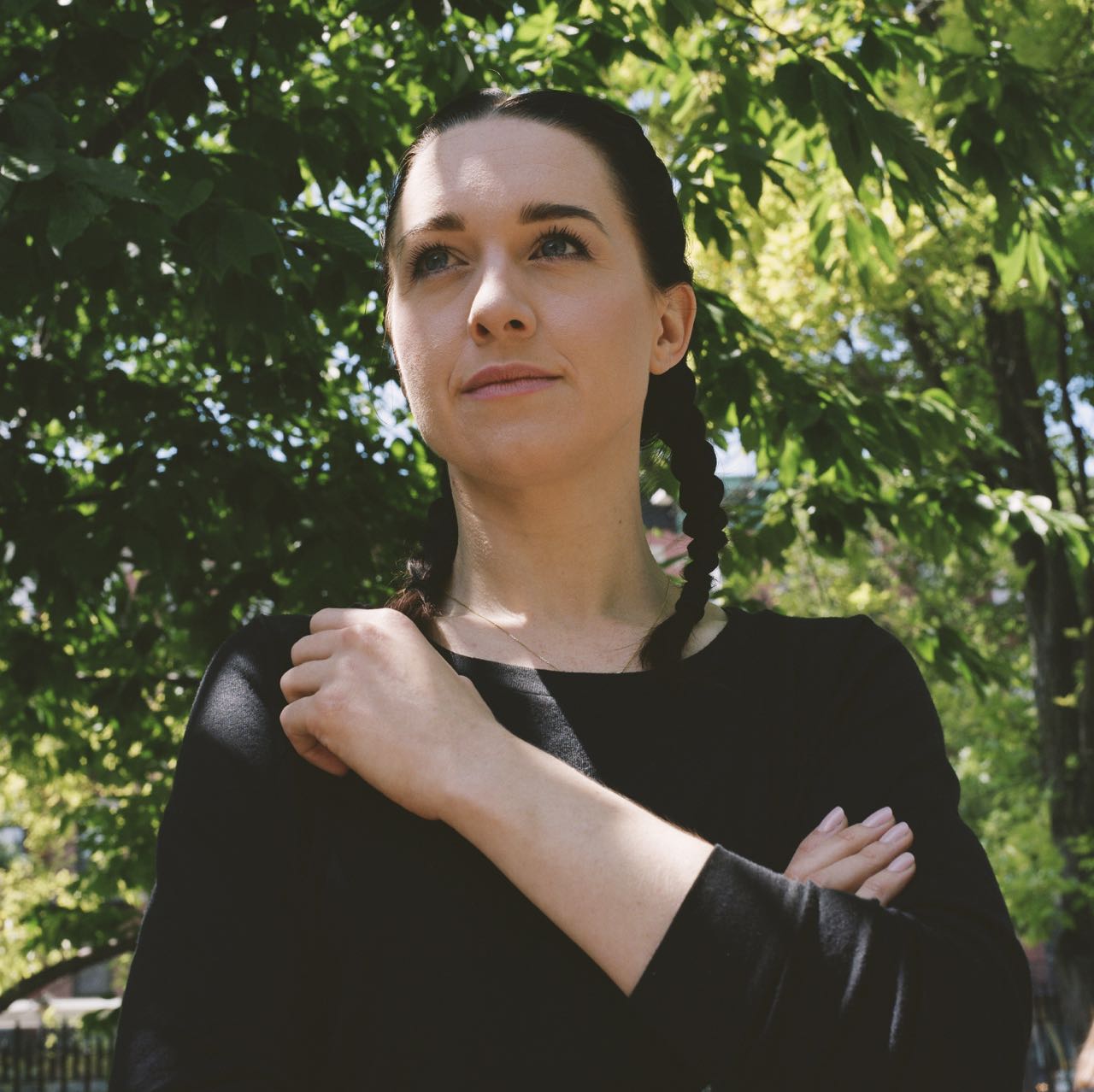
Back in those decades that you mentioned, the popular music of the generation was also theatre music. Do you like having two separate creative outlets in pop music and Broadway, or do you wish that there were more interaction between your two different musical worlds?
Yeah. I mean, Hedwig’s a good example of the perfect combination of the two. The music is very rock ‘n roll, very hard rock, not something you would typically hear on Broadway. I did a film called Becks, and I think that combined the two really well for me. It was storytelling, but also musical, but the music is a folk-rock current sound, and that’s a good way of getting that out there. I think that the process to get a show on Broadway is so long that it sounds dated by the time it gets up on Broadway. The challenge for Broadway composers is to be able to write timeless music. Hedwig is totally timeless music, and there are other shows. Any Sondheim show is timeless. There’s really no one specific era or date you can link it to, because it is absolutely timeless music.
I think that the challenge for writers is writing timeless music that will last decades and centuries, and be something that everybody plays and listens to. Right now, there’s a very clear sound happening on Broadway, and it’s not quite pop. It’s its own thing, which is cool.
Composers that write really detailed and storytelling lyrics, those are the ones that could write a Broadway show. The whole thing about a show is that the song needs to push the storyline forward. It’s hard to do that with pop music, because a lot of pop music gets the same sentiment over and over again. With a musical, it’s got to have some kind of arc and storyline in it, and that’s hard to write, but there are certain people out there who write like that. I would love to see them compose for Broadway.
You worked with Cyndi Lauper on Kinky Boots. Did you find her to be an example of a pop songwriter who can compose for Broadway?
Yeah, that was great! It is a really cool show. Kinky Boots is definitely one of those shows where the music is really fun and cool and heartfelt, and the lyrics are great. The lyrics move the show forward. They tell a story. Cyndi’s great. I would totally do a Cyndi Lauper Obsessed, but it’s so close to hitting it on the nose. People like it when I sing something that is totally opposite of how I am.
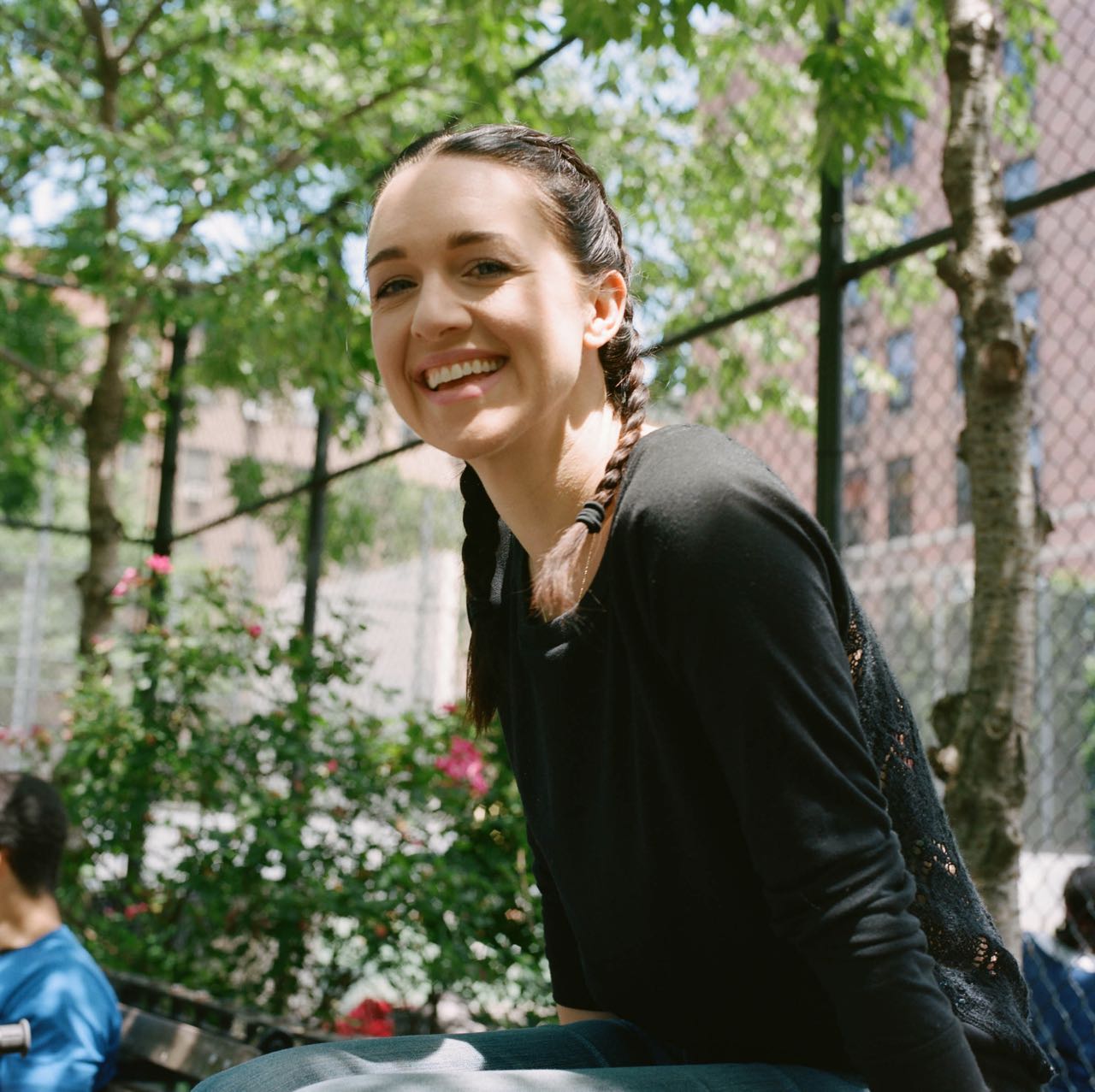
Do you consider yourself a musician first, or performer, or storyteller?
I think it’s telling an overall story. I’m really drawn to narrative, telling a story, having an overall arc of the bigger picture. I think that’s where I start every project. I start with the overall arc of, “What am I saying? Where am I going? Where’s the beginning, middle, and end? How does this link?” That’s basically how I approach pretty much everything. I do a bunch of shows at The Carlyle; they’re cabaret shows, and I tell stories. Inevitably, even if I’m not even thinking about it, there’s a huge arc. I didn’t even do that consciously. It’s ingrained in me to do that. Maybe one day, I’ll be a director, but for now I love performing. I love it, love it, love it. I love storytelling.
You seem really adept at navigating your versatile theatre career; you’ve gone from doing dance-heavy shows like Cats to understudying legit soprano Kelli O’Hara [in Dracula] to winning a Tony Award for playing Yitzhak in Hedwig. It’s as if you’ve been able to break out of any box that this industry might’ve tried to put you in.
It’s a struggle when you can’t find your niche box. It’s hard to get cast. When you walk into a casting office, they see you as a character or they don’t. A lot of times, if you toe the line between everything, it is really hard to be cast. So, the constant struggle pretty much my whole career was finding who I am and where I am placed, because I am such a chameleon. I mean, I just change my hair color, and I’m a totally different person. I love playing all the characters, but there’s that one thing that I’m really drawn to. I was like, “I’m a rocker. I love singing rock ‘n roll. I love being the strong one.” I dyed my hair dark, so I fit the character more. I changed my name, so I fit the mold more of what I love to do.
Now, I’m going into TV and film. I’m going to be doing a television show [TNT’s “Snowpiercer”], and I’m not sure how that industry sees me. I’ve done one big movie, and I did a “Girls” episode. I’m being seen as something I never thought I’d be seen as, which is this sexy yoga instructor who’s funny. So, we’ll see how they see me, and what happens and how that career goes. I know how my career has gone on Broadway, and I know where I’m going there. So, now I get to go into this whole new venue, and see where that takes me.
As far as recording [music], that’s just me. Doing the one-woman shows is basically [me] telling stories of my life, which is the most of me you’re ever going to get. I can be very funny, and I can be very hard, and I can be very strong, and I can be very weak and sensitive. I think we can all be everything. There is no one thing that I am, other than me.
How much was your name change a conscious part of this re-branding of yourself? You’d discovered that your original last name, Carvajal, had actually been chosen as a stage name several generations ago by your own family, and was, in itself, a construction of sorts.
There’s always the authentic self in there, no matter what; even if I’m playing an extreme character like Yitzhak, there was an authentic me in there. I was going through the same pain, and that was all there. Anything that I do, I always bring myself into it. The name change [had] nothing to do with my heritage. You know, I am Spanish-Filipino, but I don’t look Spanish-Filipino, and in this business, it’s very important to represent what you look like. And I was getting seen for the wrong things. There’s something in a name that will really suggest who a person is. I was going by Lena Hall in my rock band, and I loved the way it sounded. It was symmetrical and short. People could remember it. They could spell it. They could look it up if they were interested in seeing who I was. Lena’s a nickname, Hall is just a shortened version of my last name. Celina Carvajal, it’s a beautiful name and there’s a lot of rich history there, but it’s difficult to remember, spell, and I knew that if I was going to make it in this business, I needed a hook. It’s like a brand hook. At the end of the day, we are brands.
[At the 2018 Tony Awards,] Lindsay Mendez was talking about how she was supposed to change her name and didn’t end up doing it, and that she was glad that she didn’t. But Mendez is a different thing. She looks the part. For me, people would be like, “What’s your last name?” They’d be confused by it. I was holding onto it for a really long time, because I thought, “I’m going to honor my family.” Then I found out it was not our real last name. In my late 20s, I found out Garcia’s our real last name, and I was like, “Really? Why am I holding onto this? My ancestors would be thrilled if I changed my name too.” Because they were seven generations of performers.
As somebody who’s aware and proud of her Spanish-Filipino heritage, those seven generations of performers, do you have any thoughts on what performers, or people in general, could do right now to be more inclusive of all different backgrounds?
I think it’s really good to talk about where we each are from and what we each believe. The problem right now is everybody’s attacking each other. We have to remember, at the end of the day, we are literally all the same. We all have really deep backgrounds that are from everywhere. Regardless of what we believe, what sex we think we are, who we love, or what color our skin is, we are all human beings. I like to try to live my life the way that I think that is morally good for me. I try to live the best way I know how, with compassion and understanding. The more you point your finger at someone, the worse it’s going to get for yourself. All you can do is say, “How do I live my life the best way I know how?” and try leading by example [instead of] getting angry and pointing your finger at someone else.
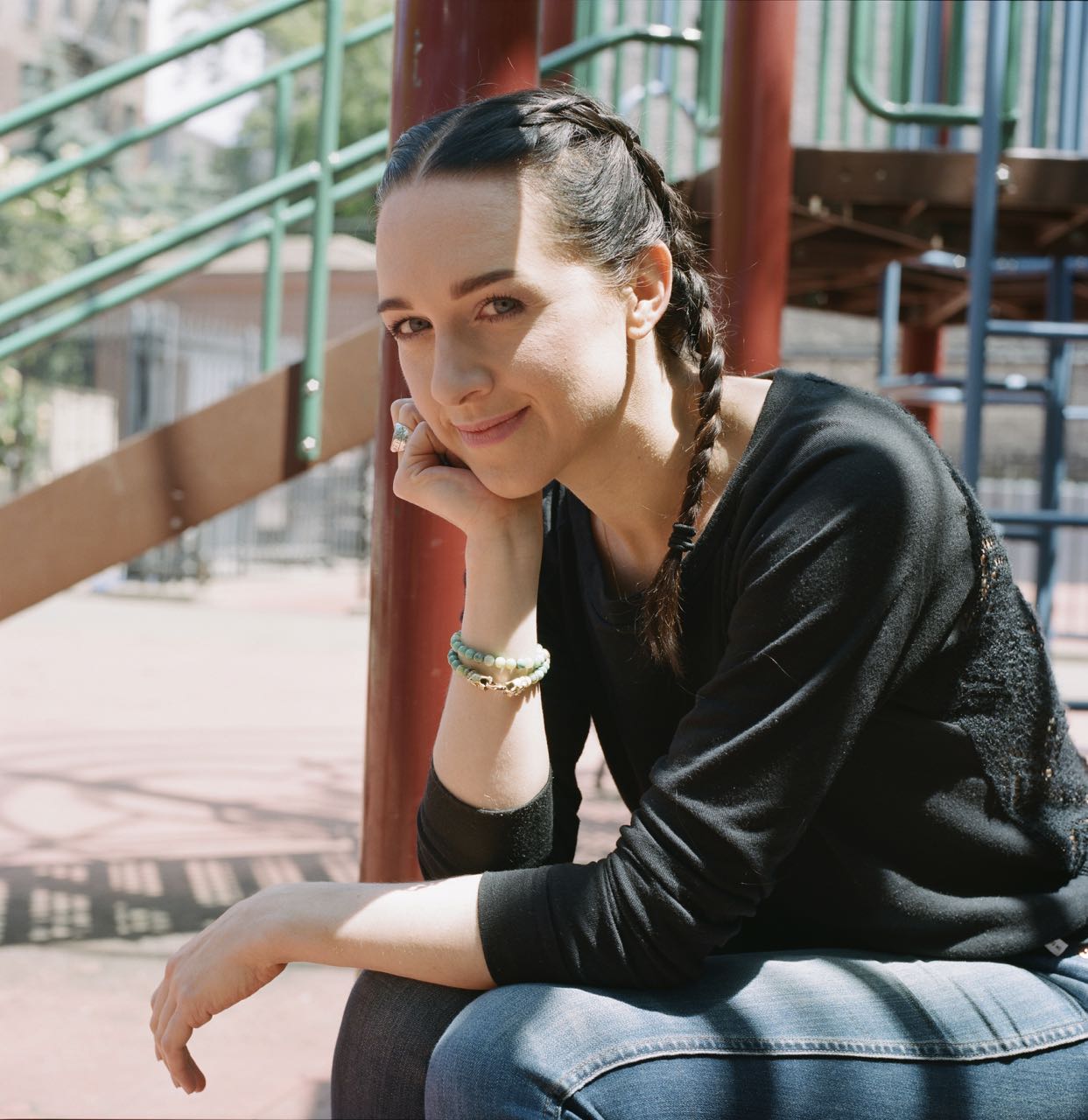
I like what you said about leading by example, because another theme that I wanted to bring up with you is that of mentorship. A few weeks ago, there was a Playbill feature in honor of the ten-year anniversary of “Legally Blonde: The Search for Elle Woods.” Reading it, I was really struck by the fact that you took in [winner] Bailey Hanks afterwards. You became her mentor, her big sister in the city. How do you try to empower younger women who are just starting out in this industry?
When Bailey was coming here to [star in Legally Blonde on Broadway], I was like, “She’s from a tiny town. She has no idea what she’s getting into. She was picked up by a reality show, which is not real. So, she’s going to have a little shock. It’s going to be an adjustment. The best thing for her is to have someone she can talk to, and give her some info about everything.” No one was going to do that. So, I was really happy to be there for her. I like being able to give what I went through to people, to anyone who needs it, because I think it’s really important to pass along the knowledge that you have. A lot of people get really competitive, but at the end of the day, competitiveness is just not helpful because what you give, you receive. What I’ve learned through this business, to me, is really invaluable, and I love to be able to give that to other people. It’s really important to have someone on your side who’s got the knowledge, if you’re starting out.
Is there something that you wish a mentor had said to you when you first came to New York?
Oh yeah. I’ve noticed young people who come to the city and get their Broadway show really early on, they become very entitled. And I was very, very entitled. I felt like I deserved more than I was getting. I was comparing and despairing, comparing my life to other people my age who were doing better than I was. I was really upset about how I wasn’t doing that well and I wanted more, and I thought I should have more. It created this bitterness and anger towards the business that was really unnecessary. I wish I had been told that we all have our own journey, and to just keep doing it, to be grateful for everything, every day, every struggle, because the struggles are really what make you a stronger, better performer, a better person. It’s what pushes you. I guarantee that even the most successful person has had tons of failures, but they’ve learned from it and grown from it. It’s those failures that are more important than the wins. The wins are like the pats on the back for doing a good job, and enduring all of the hardships and the pain.
That idea connects back to what you were saying at the beginning, about your realization that the vocal imperfections added the most texture and vibrancy to your recordings of the Obsessed project.
Yeah. Most people are too afraid to fail, so they never actually give it their all. It stops them from becoming the best they can be. They have to realize that failure’s good. Failure’s good; it’s not a bad word. It’s not a bad thing, and it sucks for a minute, but the amount of growth you get from that is paramount, it’s huge.

